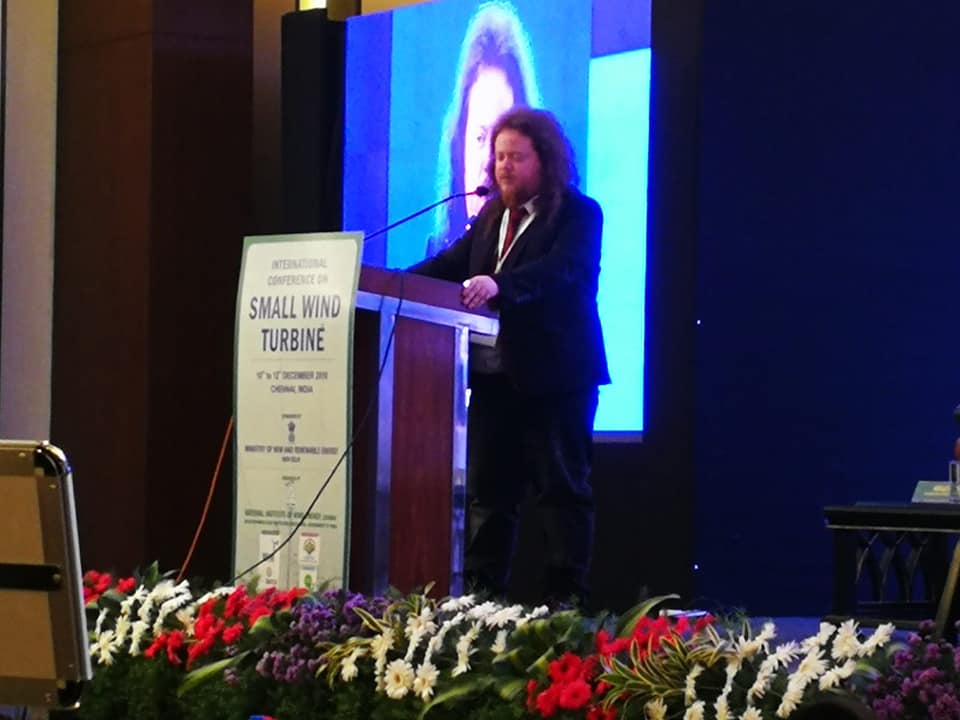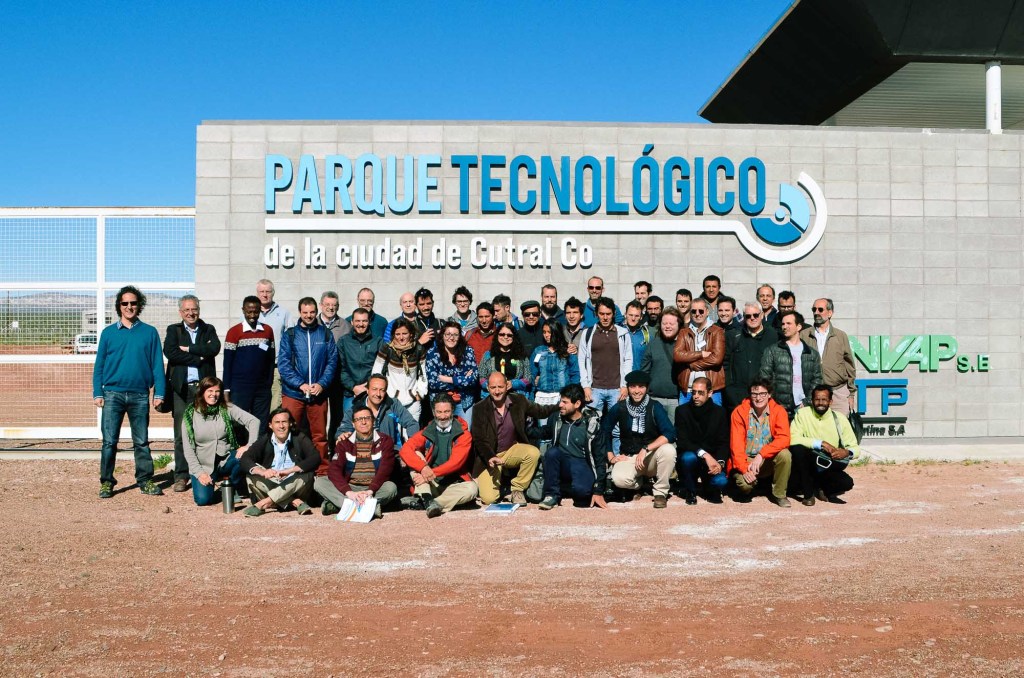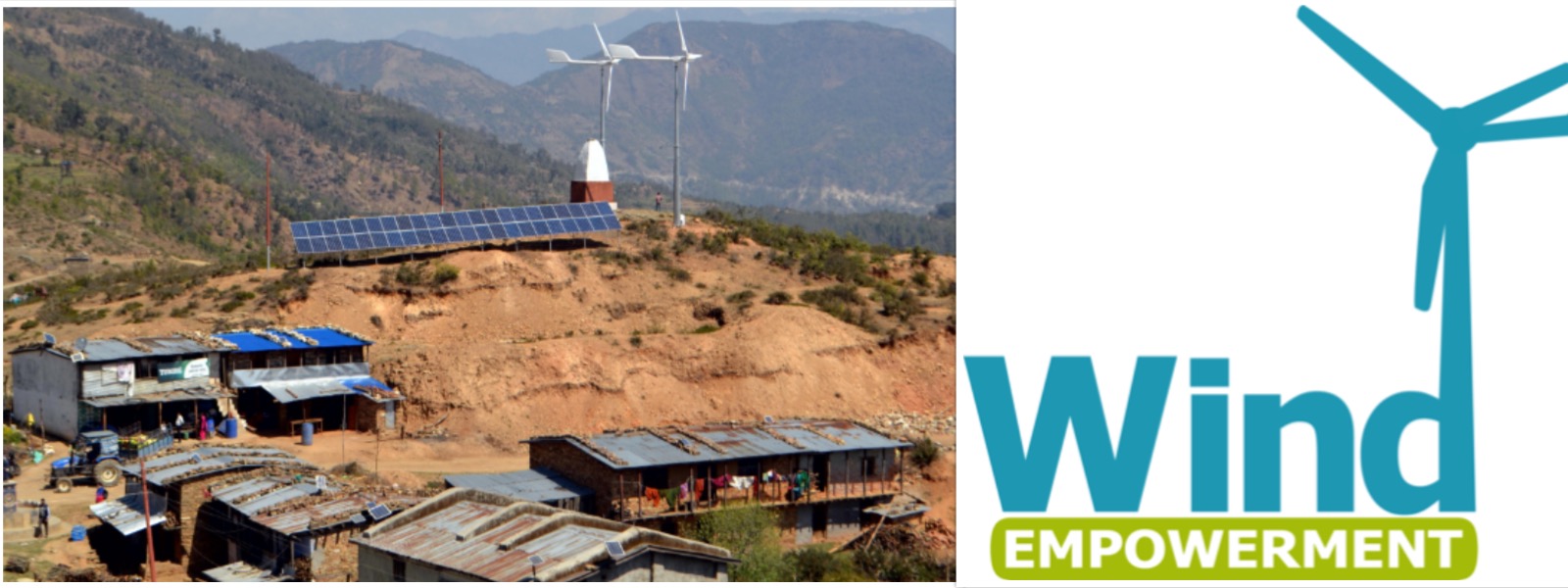Many people think that PhD students just sit in front of a computer or at a lab, screaming by themselves all day. We met with Alfie Alsop and he proved this urban myth completely wrong.
You studied Physics and Astrophysics at the University of York. How did you end up in a Wind and Marine Energy Systems CDT instead of Mars?
Astrophysics was a really fun degree and I feel like I learned a lot by gaining a deep understanding of all the basic principles that drive physical and artificial systems. It's a degree which is broad enough and gives you the flexibility to explore whatever you're more interested in. My master thesis project was on a wind tunnel, testing wind turbine blades and the magnus effect. I quickly realised that I wanted to investigate the world of wind further and therefore I applied to the CDT.
How was your initial experience on the CDT? Was it challenging coming to a non-engineering school from a non-engineering background?
The first year of taught courses in the CDT was quite intense, with lots of workload and exams, but I got exposed to many new things and gained an overall perspective of how wind and marine energy systems work. The transition from physics was relatively easy, I just learned more practical applications of things I had already come across during my degree.
You came to the CDT with an idea to combine your astrophysics skills with the more earthly knowledge of wind power. What was it?
I had a dream; I wanted to create plasma actuators for wind turbine blade aerodynamics...
Alfie smiled and gazed out the window. He still believes in his revolutionary idea. Maybe one day he will be able to work on it.
So how come you end up completely changing the course of your PhD?
Towards the end of the first year in the CDT I attened a Wind Empowerment presentation by Jon Leary and Aran Eales. They were also looking for volunteers to get involved in the Wind Empowerment association. I was slightly hesitant and I signed up for it, with a question mark next to my name. Alfie laughed. I didn't know what I was getting into.
What is Wind Empowerment though?
Wind Empowerment is an international network of small wind practitioners and researchers with the common goal of developing and advocating for the use of small scale wind generation in appropriate contexts. Legally registered as a Charitable Incorporated Organisation with the charities commission of England and Wales, Wind Empowerment runs development projects across the world and hosts an international conference every two years.
And how did you come up with a PhD proposal?
The two summer mini projects at the end of the first year on the CDT give you a great opportunity to work on some research ideas and figure out if you would like to continue working on them for your PhD. I chose to do my second summer mini project with wind empowerment on 'Global market assessment for locally manufactured small wind'. I really enjoyed working on it so it naturally evolved into a PhD proposal, since it is a topic with many unexplored research paths.
What exactly are you researching in your PhD?
The title is 'A Market Assessment Methodology for Small Wind in the Developing World'. A market assessment is a way of finding out how well a certain 'product' meets the needs of the 'consumers'. So in this case the methodology aims to work out how well Small Wind can meet the needs of the rural poor in developing countries, using GIS mapping, system modelling and other more qualitative methods to work out the opportunities and barriers to the technology in a given context. The end result of the process is a quantified market size/potential and a series of actionable recommendations for the sector to improve.
Your first international trip to talk about your research came quite early on your PhD, when you travelled to Argentina. How was that experience?
I traveled to Argentina during the first year of my PhD, for the Wind Empowerment intenational conference. There I got elected on the executive board. It was overwhelming.
Yet your exciting travels didn't stop there! A year later you went to Nepal...
In March 2018 I travelled to Nepal to work with Kimon Silwal of the Kathmandu Alternative Power and Energy Group (KAPEG) to conduct a National Market Assessment for small scale, off-grid wind turbines for rural electrification. Nepal is one of the worlds most mountainous countries, and so extending the national grid to rural locations is often unfeasible, making off-grid electrification necessary. The Market Assessment project aimed to map the country and identify potential areas for small scale wind implementation. The project also aimed to identify the technical, political, financial and social barriers to implementation, and to recommend the necessary steps to avoid or mitigate these barriers in future. Part of the work involved site visits to six existing pv/wind minigrids to assess how well they have served the local communities, followed by structured interviews with key local stakeholders in the sector, and techno-economic modelling through mini-grid optimisation software HOMER and GIS mapping software. Finally, the last part of the project involved a participatory stakeholder engagement workshop, aimed at drawing out more expert knowledge and communicating the findings of the project.
The time for the next biannual Wind Empowerment conference arrived and it took place in Chennai, India. What happened there?
This time the Wind Empowerment conference coincided with an international training course provided by the National Institute of Wind Energy in Chennai. It was a perfect opportunity to combine 2 big internatinal events for small wind. People from over 40 countries attended. We provided a training course on how to build small wind turbines, we showcased some productive uses, hosted a blade carving session and a power electronics session. I also spoke in some panels and I was really happy to share my expertise on small wind and exchange ideas with people from all over the world.
You're now in the final year of your PhD. What are your plans after you finish your studies?
Nothing concrete as of yet, the vague plan is either to stay within Academia in the Energy for Development area or to work with a development charity. I like travelling, and I like feeling useful!
Is small wind the future?
That's not a straightforward question to answer. For rural off-grid contexts, Solar PV is usually cheaper and easier to maintain so we've got to look aspects other than cost alone. Grid connected small wind is nice for enthusiasts who want a bit of autonomy but it's not really cost effective. That said, energy systems are pushing more towards decentralised generation, so I think we can see more small scale renewables being deployed as part of this. For the sake of diversity of generation we can't just rely on PV so small scale wind definitely has a part to play in both the developed and developing world.
Do you miss astrophysics at all?
I do miss space, but I wanted to work in a field where the results and benefits are more immediately tangible and I think Energy for Development fits the bill pretty well. As much as I love space, I definitely think there are more pressing matters down here that need fixing. Maybe I'll do a Market Assessment for Small Wind on Mars? Should be easy - there's no wind.
If you're more interested in Alfie's work, read his profile and publications. Find more information on Wind Empowerment. Lots of exciting projects and people who want to get involved are always welcome!

Alfie presenting at the WEIndia 2018 conference in Chennai

Wind Empowerment delegates at the WEPatagonia event in 2016
